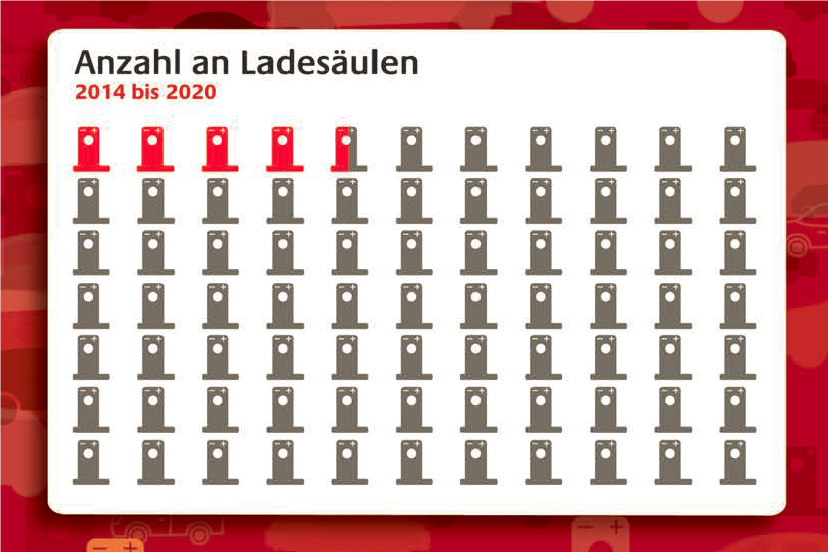The expansion of the network
The federal government also promotes charging stations for electric cars. With 300 million euros from taxpayers' money, around 15,000 new charging stations are to be built nationwide in the next few years (Zeit Magazin). According to Cohrs, 2017 private providers such as Ionity, a joint venture of several German car manufacturers, are massively expanding the store network. A charging station will be located every 120 kilometers along the main traffic routes and will enable short charging times with an output of up to 350 kW. The aim is to provide sufficient, safely available and convenient charging for the everyday use of electric vehicles suitable for driving performance and range of motion (NPE, 2015). To this end, fast-charging infrastructure will be set up primarily within the framework of support programmes at EU, federal and state level (NPE 2015). By 2017, 1400 rapid charging stations had been planned, of which about 1,000 were charging points on main traffic routes with 50 kW charging capacity and about 400 charging points in the metropolises with 50 kW charging capacity as a rule. Another 7,100 DC rapid charging points are to be added from 2017. A "10,000-pillar programme" is to provide demand-oriented direct transport of normal charging. The development of charging infrastructures in public and semi-public areas and their integration into urban structures, multi-storey car parks and company car parks presents city planners, the construction industry as well as cities and municipalities with major challenges.

Number of charging stations 2014 to 2020 (source: NPE (2014), P. 42)
